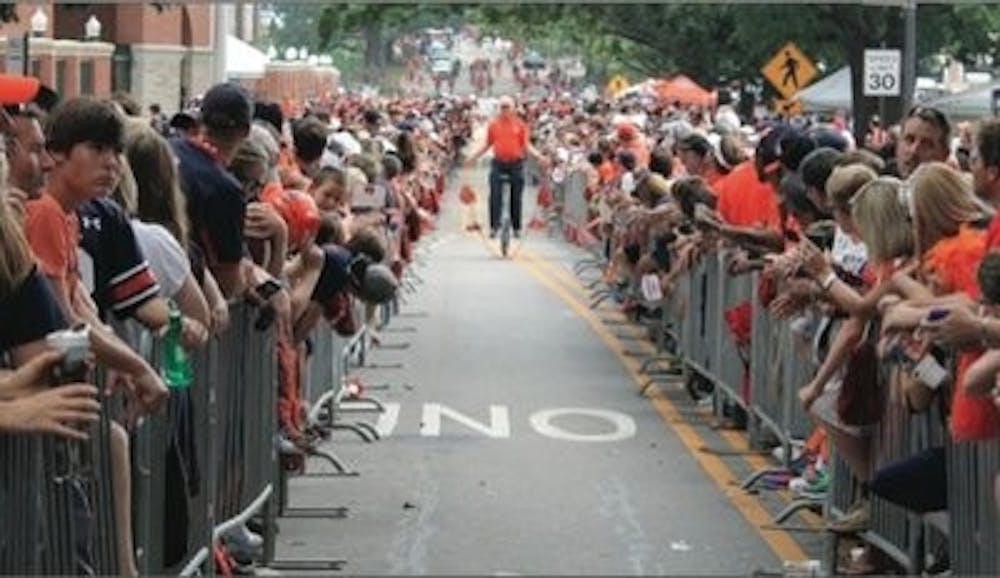As the tailgate waste on Auburn's campus continues to reach unprecedented levels, University recycling programs have taken a different approach to keeping the school clean and green.
This past game against Mississippi State Sept. 14, was Auburn University's Green Game, a facet of the national Game Day Challenge to have the most eco-friendly NCAA football game in the country.
"We wanted to show campus that sustainability is more than just recycling," said Courtney Washburn, recycling coordinator with the Waste Reduction and Recycling Department.
"I feel like recycling is the smallest act that someone can do on a Gam Day to make the biggest difference, by simply throwing your can or your bottle into the recycling bin, you're making a huge difference," Washburn said. Promoted by non-profit organizations such as the College and University Recycling Coalition, Keep America Beautiful and Recycle Mania, the Green Game is a competition for the lowest environmental impact of a single game chosen by the University to compete with other schools.
Statistics on GameDayChallenge. org show Ohio State had zero trash in their stadium and was the 2012 winner for their waste minimization and diversion rate of approximately 98 percent.
Auburn's diversion rate finished third in the SEC, behind LSU and Tennessee, during the 2012 Game Day Challenge recycling and trash diversion rate, but the school has its sights set on being the No. 1 recyclers in the SEC, Washburn said.
Though the school won't know its total waste-diversion rate until the end of the week, Washburn was optimistic that the game against Mississippi State was greener than last year.
"Recycling in the stadium really does drop as the temperature goes down and people aren't buying as may plastic bottles," said Donnie Anderson. "That's why we focus our efforts mainly for the first four home games because those are going to be the warmest, typically."
Washburn said the Mississippi State game alone generated several dumpsters worth of recycled plastic bottle.
While Auburn volunteers do a substantial amount of the recycling work during gameday for the price of a game ticket, the school's biggest challenge with collecting recycling is the prevalence of tailgate areas too distant from campus to be serviced.
"While we may have 20 volunteers when were right here, we can't send people all the way out to the vet school, its too sprawled out for our volunteers on foot," Washburn said.
Working in partnership with the Waste Reduction and Recycling Department and recycling this season, the Office of Sustainability used the Green Game was used to promote the Auburn Sustain- A-Bowl, the competition between dorms to reduce energy and water use.
"I think the biggest thing you can do to help people move in a sustainable direction is let them know what the situation is and what they can do to be more sustainable," said Jen Morse, TES Technician with the Office of Sustainability. "Whether it's clean air or freedom or social justice, so whatever anybody values, it has a link back to sustainability."
Sustain-A-Bowl will continue until the end of September when the results of the most green dorms will be announced.
The Gameday Challenge extends until the end of the football season, when the results of competing schools will be made available to the public.
Do you like this story? The Plainsman doesn't accept money from tuition or student fees, and we don't charge a subscription fee. But you can donate to support The Plainsman.





